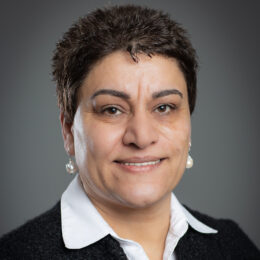Educational Studies
Grounded in liberal‑arts and real‑world experience, this non‑licensure major equips students to work with learners of all ages in community, counseling, coaching, or educational settings with early field engagement, flexible focus options, and strong internship support at its core.

Earn a Bachelor of Science in Educational Studies
The Education Department prepares students for a variety of careers that involve working with individuals of all ages and abilities. While the licensure-track program specifically prepares students to be licensed to teach in a traditional classroom setting, our educational studies degree is intended for those interested in a career in which they have a foundation in education, but work in various settings with individuals of any age. While an educational studies degree does not lead to teacher licensure, the major offers a variety of focus areas to provide students with courses in their area of interest:
- Business
- Coaching
- Counseling
- Education
- Fine Arts
Program Information:
Major | BS
- 35 Credit Hours
Location
- North Manchester
What You Can Do with Your Educational Studies Degree
Academic Advisor
Guide students through course selection, degree paths, and academic planning.
Community Outreach Coordinator
Design and manage educational programs within schools or nonprofit organizations.
Instructional Designer
Develop curriculum materials and training programs for schools or businesses.
Early Childhood Center Director
Oversee daycare operations and early childhood educational programming.

Average Starting Salary for Educational Studies Degree Holders
According to the U.S. Bureau of Labor Statistics (BLS), education-related roles such as instructional coordinators, training specialists, and health education professionals offer promising career outlooks. Training and development specialists are projected to grow by 12% from 2023 to 2033 with median salaries ranging from $55,000 to $65,000. Health education specialists are expected to see 7% growth and earn a median salary of $63,000. While traditional education and library occupations may experience slower growth, they still offer a solid median wage of $59,220. Overall, Educational Studies graduates can anticipate stable employment and competitive pay, particularly if they pursue roles in corporate training, nonprofit education, or health and community outreach.

About the Educational Studies Program
Regardless of which education major a student chooses, our courses are built not only to provide content and pedagogical knowledge to be successful in their career, but also provide them with the following employable skills:
Advanced Cognitive Skills
- Critical Thinking: The ability to analyze and evaluate an issue or situation critically, to form a well-reasoned judgment.
- Complex Problem Solving: The skill of identifying complex problems and reviewing related information to develop and evaluate options and implement solutions.
- Experiential Learning: The ability to apply academic learning to analyze real-world issues and develop practical recommendations, enhancing your critical thinking and problem-solving skills within a professional context.
- Exercising Ethical Judgment: The ability to assess situations or decisions with a focus on ethical implications, ensuring actions are morally sound and align with ethical standards.
Communication and Data Literacy
- Analyzing and Interpreting Data: The ability to examine data sets, identify patterns or trends, and draw meaningful conclusions to inform decision-making.
- Oral Communication: The skill of effectively expressing ideas and information verbally in a clear, concise, and engaging manner to diverse audiences.
- Written Communication: The capacity to convey information and ideas in writing clearly and coherently, adapting the style and tone to suit different purposes and audiences.
- Utilizing Technology: The proficiency in using digital tools and technology to enhance productivity, communicate effectively, and solve problems.
Interpersonal and Adaptive Skills
- Adaptability and Flexibility: The ability to quickly adjust to changing circumstances and new environments, demonstrating resilience and openness to new approaches.
- Collaborative Teamwork: (Working in Teams) The skill of working effectively within a team, actively contributing to shared goals, and supporting team dynamics. The capacity to work well with others by encouraging, motivating, and building positive relationships within diverse groups.
- Cross-Cultural Understanding: The ability to recognize, appreciate, and effectively navigate differences in values, beliefs, customs, and behaviors among people from various cultural backgrounds.
- Motivation and Innovation: The ability to demonstrate motivation to complete a task by setting clear objectives, creating a strategic plan, adhering to deadlines, and showing persistence and enthusiasm in overcoming obstacles.
Web Resources
Indiana Department of Education
Licensure Testing
Praxis II Testing
MAE Membership
Handbooks
TEP Handbook 2024-25
Student Teacher Handbook 2024-25
Scholarship Opportunities
Indiana Retired Teacher Association Scholarship
Next Generation Hoosier Educators Scholarship
Meet the Faculty
Educational Studies Learning Outcomes
Program Learning Outcomes
1. Recognize that education is a human and civil right.
Student Learning Outcomes:
- Students will develop and articulate their professional identity in a vocation by demonstrating their ability to effectively communicate in written and spoken forms on various platforms.
- Students will engage in reflective analysis of coursework, clinical experiences, and personal growth through various modes advocating their knowledge and understanding of educational systems and learning environments.
2. Seek to improve the human condition through ethical educational practices.
Student Learning Outcomes:
- Students will establish and reciprocate professional relationships that are inclusive and equity-minded while demonstrating ethical decision making.
- Students will participate in clinical experiences recognizing professional practices as ethical or unethical and propose alternate practices to improve the human condition.
3. Design, implement, and assess developmentally appropriate learning experiences.
Student Learning Outcomes:
- Students will construct and deliver developmentally appropriate curriculum or organizational models for learners applying research-based practices.
- Students will assess and evaluate learners’ performances/development and effectiveness of organizational programs using data-driven practices.
Non-Discrimination in the Admission Process
Manchester University is committed to non-discrimination in campus life. The University does not discriminate on the basis of national origin, ancestry, race, color, age, sex, gender identity or expression, sexual orientation, familial status, religion, disability or veteran status in admissions or any area of campus life, including its educational programs, scholarships and loan awards, residence life programs, athletic programs, extracurricular programs, promotion and tenure policies and practice, and alumni affairs.
Manchester University is committed to carry out the provisions of Section 504 of the Rehabilitation Act of 1973 and the Americans With Disabilities Act, which provide for accessibility of University programs to the physically disabled.









